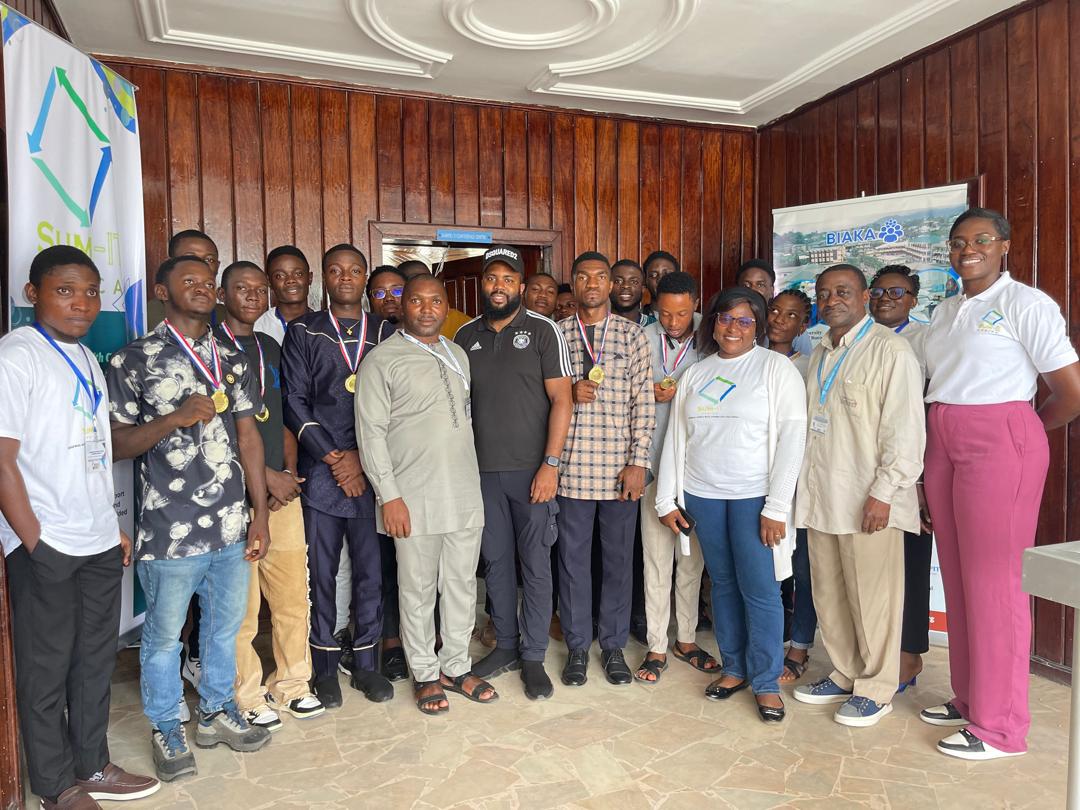From the 20th – 22nd of March, at the campus of Biaka University Institute of Buea (BUIB) tech enthusiasts, students, and industry professionals gathered for a transformative three-day Internet of Things (IoT) capacity-building and hackathon program. Organized by SUM-IT Africa and hosted by BUIB’s School of Engineering and Technology, the event which ran for Three days aimed to equip participants with the technical skills and innovative mindset necessary to build IoT solutions that address real-world challenges in Africa’s digital economy.
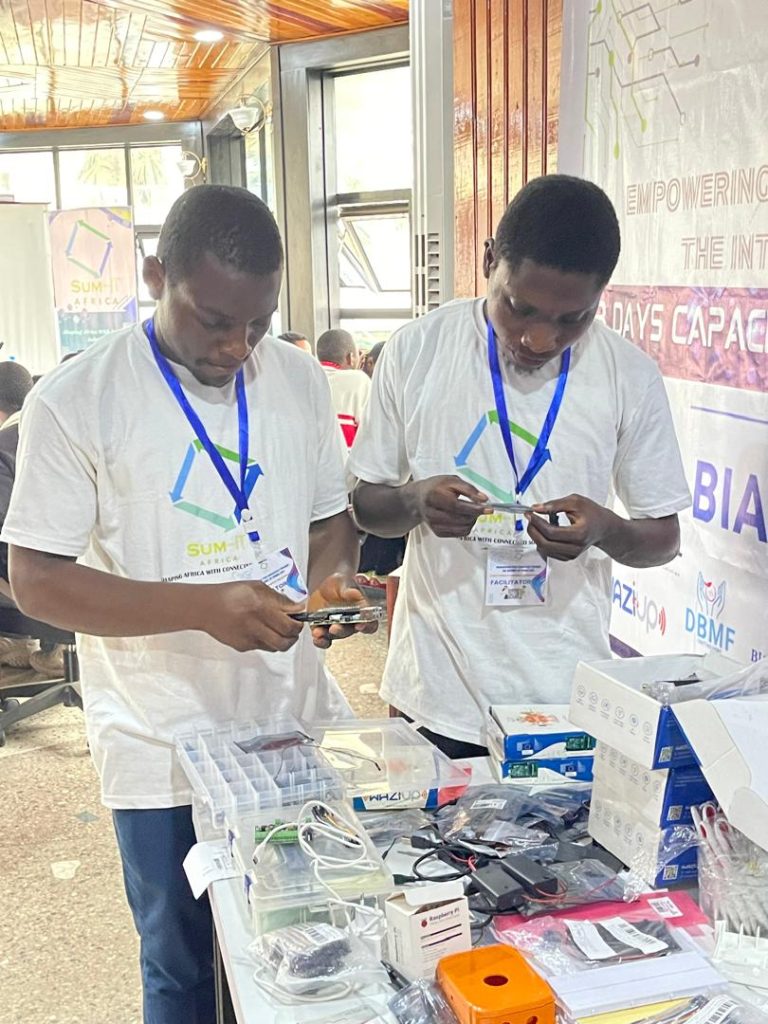 The opening day was meant to Set the Stage for Innovation as event officially opened on March 20 with an inspiring welcome speech from the founder of SUM-IT Africa, Ms. Ebude Hilda who emphasized the importance of IoT in shaping Africa’s technological future. The Director of BUIB’s School of Engineering and Technology, Dr. Willibroad who represented the Vice Chancellor followed with remarks highlighting the university’s commitment to fostering technological innovation and empowering students with industry-relevant skills.
The opening day was meant to Set the Stage for Innovation as event officially opened on March 20 with an inspiring welcome speech from the founder of SUM-IT Africa, Ms. Ebude Hilda who emphasized the importance of IoT in shaping Africa’s technological future. The Director of BUIB’s School of Engineering and Technology, Dr. Willibroad who represented the Vice Chancellor followed with remarks highlighting the university’s commitment to fostering technological innovation and empowering students with industry-relevant skills.
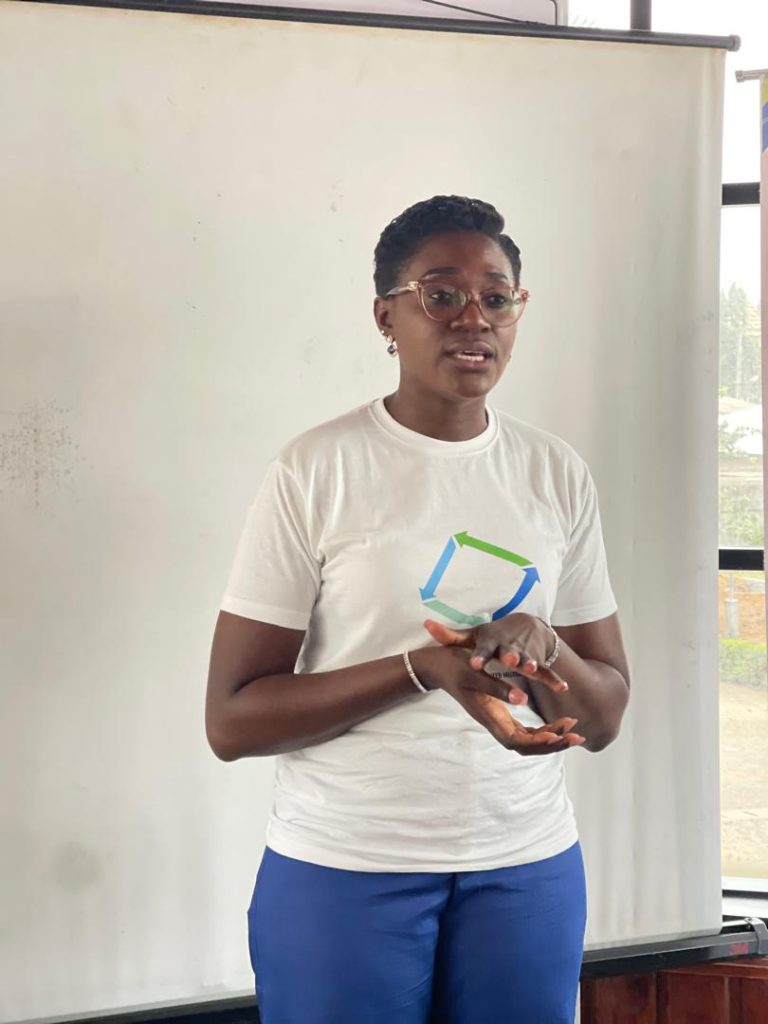
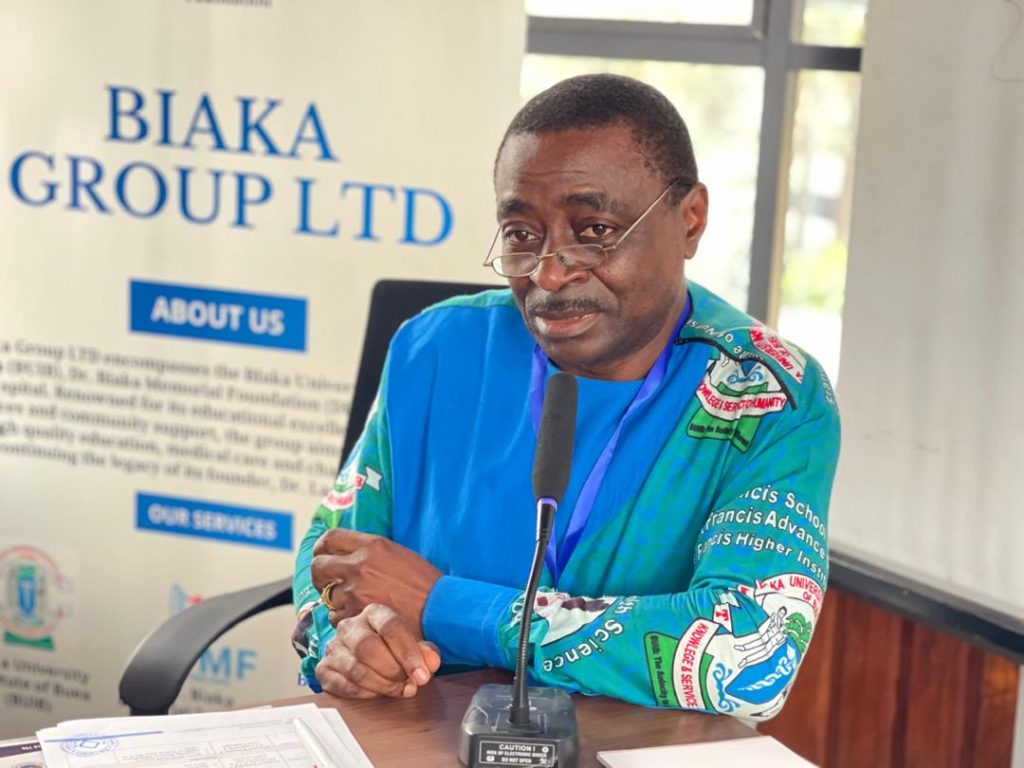
Following the opening remarks, participants were taken through an overview of the program’s expectations and hackathon goals. The organizers outlined key learning outcomes, the structure of the hackathon, and the judging criteria for the final pitch session.
A keynote address by Mr. Fon Wilfred, the CEO of Revival Digital Company shed light on the Relevance of IoT in Africa’s Digital Economy. He highlighted how IoT technologies are revolutionizing sectors such as agriculture, healthcare, and urban development and encouraged participants to focus on solutions that have a tangible impact on African and the middle-East communities.
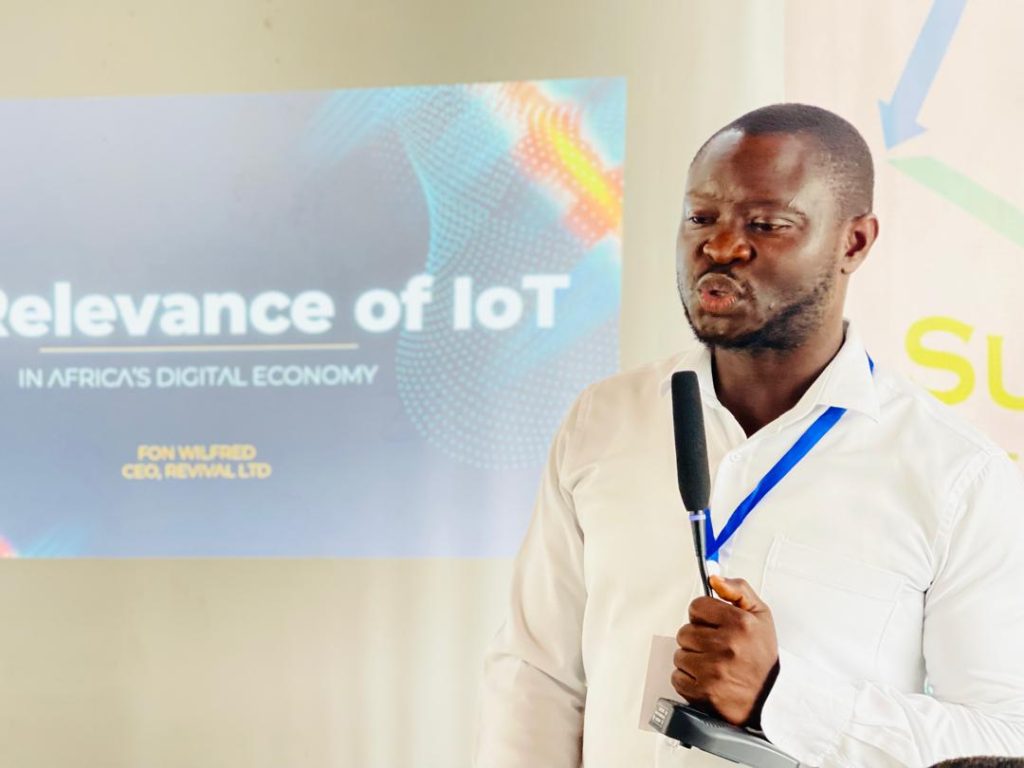 Next was a panel discussion on Challenges, Opportunities, and Future Prospects of IoT in Africa brought together industry leaders, startup founders, and academics. The panelists engaged in a thought-provoking discussion about infrastructure challenges, data security, and the need for local talent development. They also discussed potential opportunities, such as smart agriculture, e-health solutions, and IoT-driven logistics optimization.
Next was a panel discussion on Challenges, Opportunities, and Future Prospects of IoT in Africa brought together industry leaders, startup founders, and academics. The panelists engaged in a thought-provoking discussion about infrastructure challenges, data security, and the need for local talent development. They also discussed potential opportunities, such as smart agriculture, e-health solutions, and IoT-driven logistics optimization.
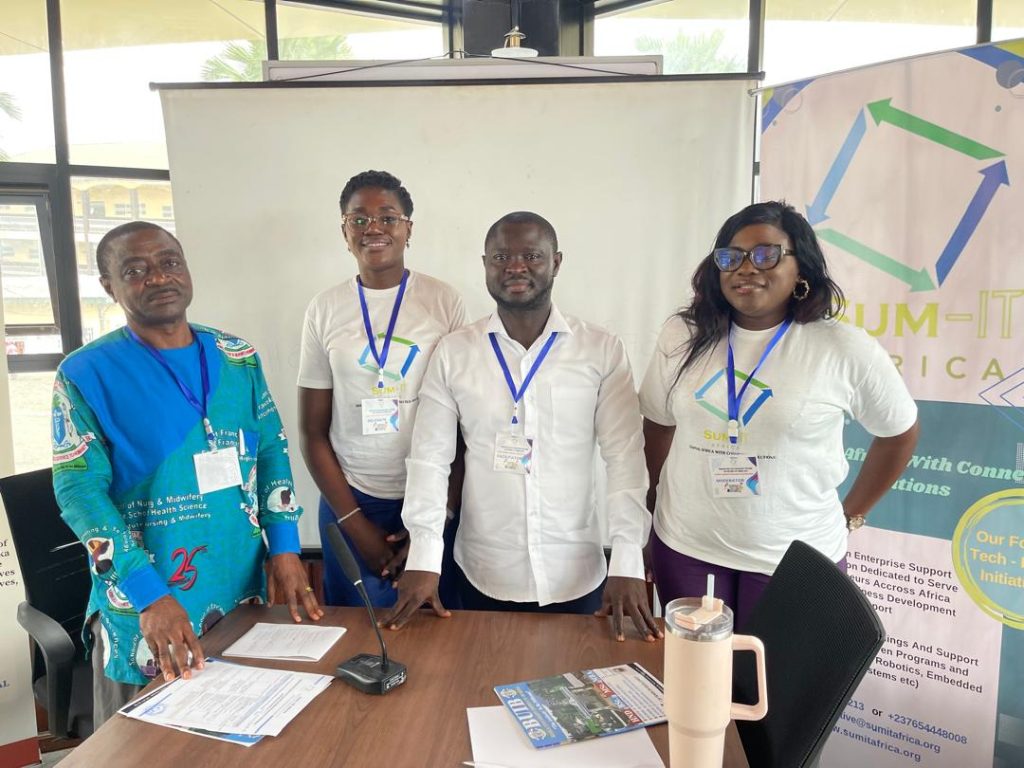
After the panel session, the technical workshops began, immersing participants in hands-on learning experiences. The first workshop on IoT Connectivity focused on various communication protocols, including MQTT, LoRaWAN, and NB-IoT, providing participants with a foundational understanding of how IoT devices communicate. The second workshop, Cloud Integration for IoT, introduced participants to cloud platforms such as AWS IoT Core and Google Cloud IoT, showcasing how cloud computing enhances data processing, storage, and analytics.
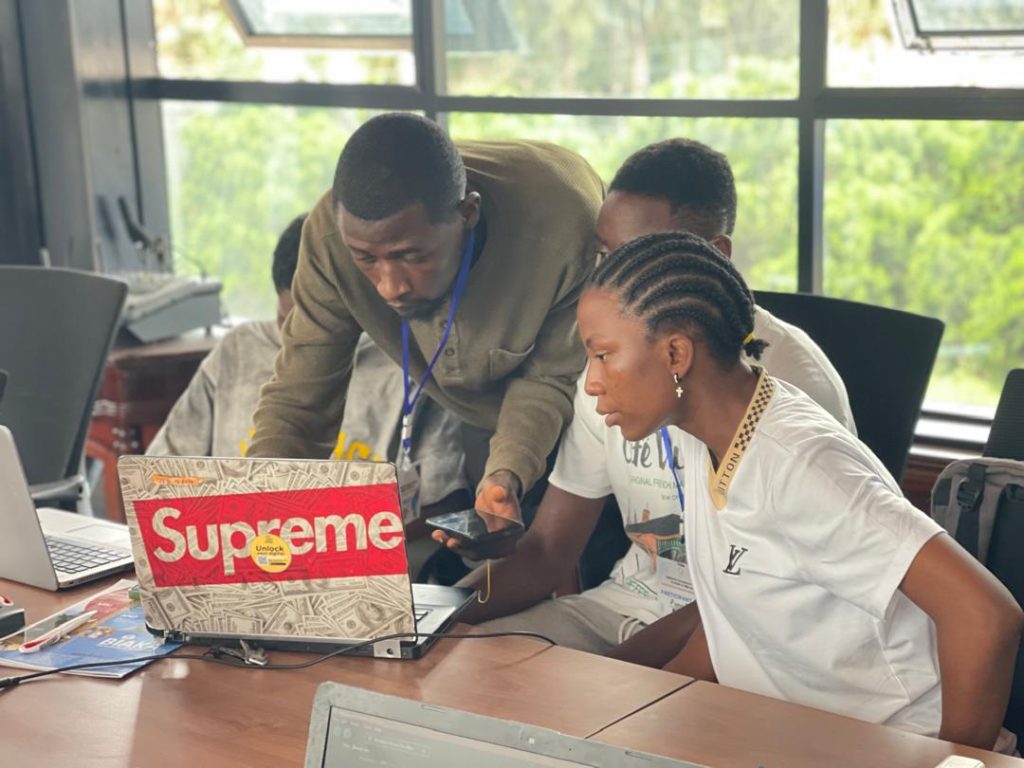 The day concluded with teams formation and an idea brainstorming session. Participants grouped into teams, shared their interests, and began conceptualizing their IoT solutions. By the end of the session, teams had sketched out preliminary ideas and assigned roles, setting the stage for the intensive development process to follow.
The day concluded with teams formation and an idea brainstorming session. Participants grouped into teams, shared their interests, and began conceptualizing their IoT solutions. By the end of the session, teams had sketched out preliminary ideas and assigned roles, setting the stage for the intensive development process to follow.
The second day started off with a Design Thinking Masterclass on User-Centered Innovation for IoT Solutions. Facilitated by an experienced UX designer, this session emphasized the importance of designing solutions that address user needs and pain points. Participants were guided through the principles of empathy mapping, problem definition, ideation, prototyping, and testing, helping them refine their ideas before delving into development.
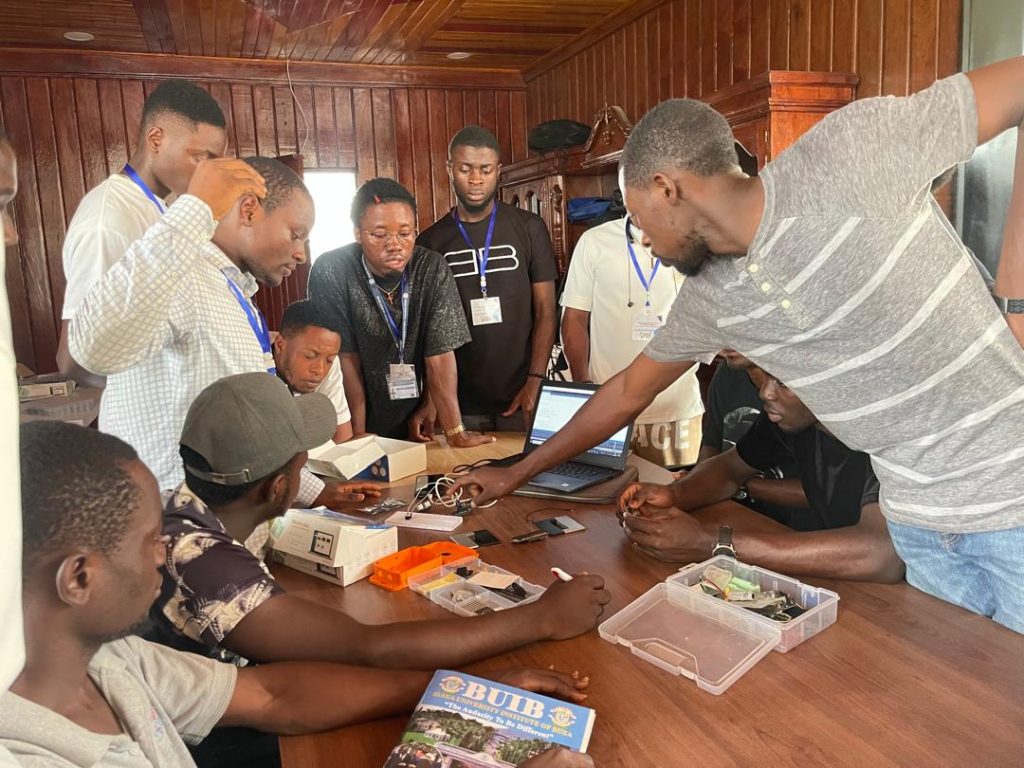
The first technical workshop of the day focused on Data Visualization for IoT. Teams learned how to interpret and present IoT-generated data using visualization tools like Grafana and Power BI. This session was crucial in ensuring that participants could make sense of IoT data and communicate insights effectively.
Next came the Hands-on Prototyping Workshop, where teams got their hands dirty, assembling hardware components, writing firmware, and connecting devices to the cloud. Under the guidance of mentors, participants tested sensors, wrote code, and troubleshot connectivity issues, steadily bringing their ideas to life.
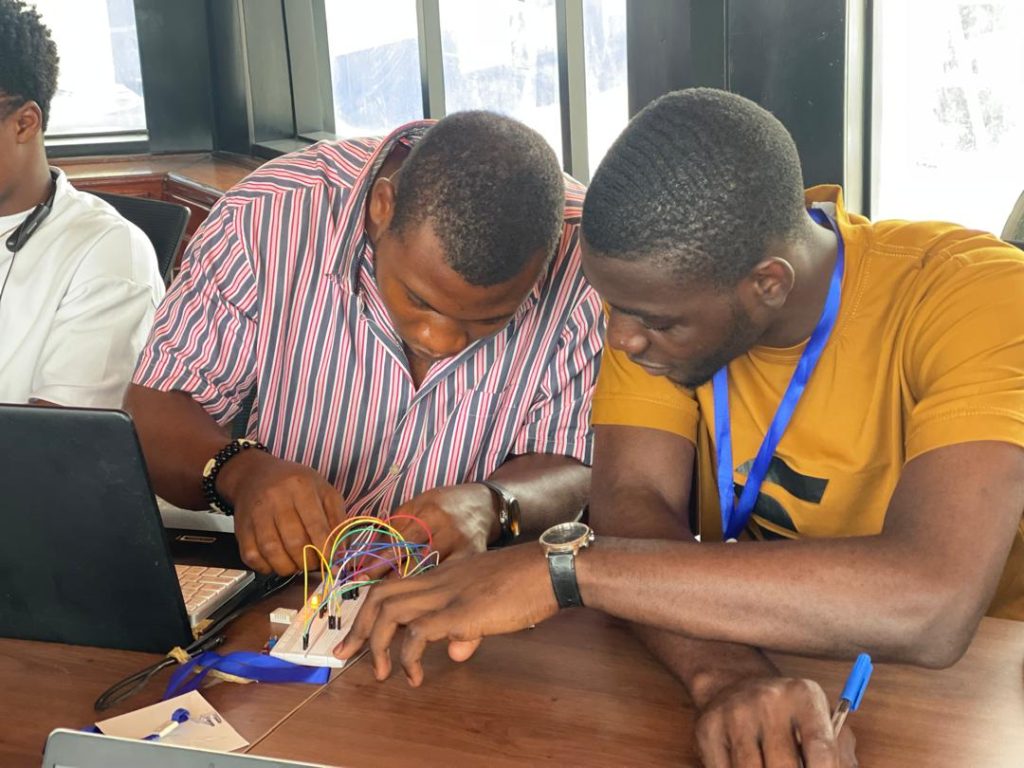
As the day drew to a close, teams participated in a Mentor Feedback Session, presenting their progress and receiving expert insights on how to improve their solutions. The mentors provided valuable guidance on technical implementation, user experience, and business viability, helping teams refine their projects in preparation for the final presentation.
The final day kicked off with a Masterclass on Pitching, designed to equip participants with storytelling techniques and strategies for delivering compelling presentations. They learned how to articulate the problem they were solving, demonstrate the functionality of their IoT solutions, and communicate the potential impact of their projects as they all aimed to win in the pitching session.
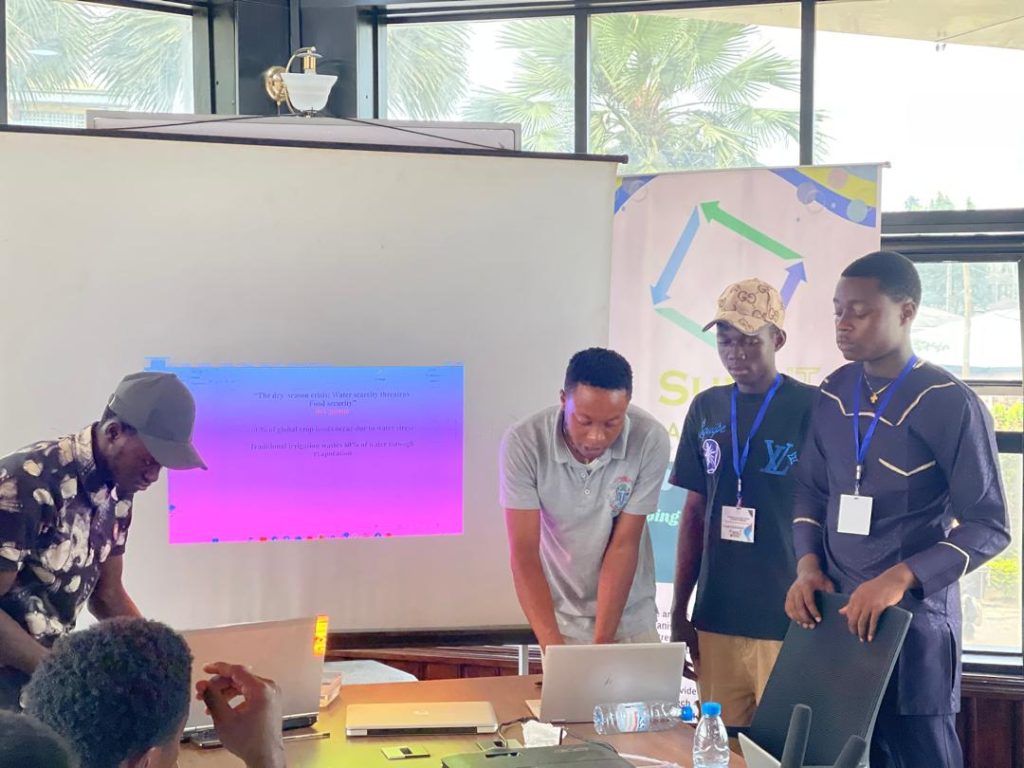
Following the masterclass, teams moved into the Product Testing and Demo Preparation Phase. This session was crucial as participants worked to refine their prototypes, conduct last-minute debugging, and ensure their demos were seamless. Some teams ran live tests of their IoT solutions, while others refined their presentation slides and rehearsed their pitches.
The event culminated in the Hackathon Pitch and Demo Session, where each team had the opportunity to showcase their work to a panel of judges comprising tech experts, investors, and academics. The presentations were evaluated based on innovation, technical feasibility, impact, and market potential. Teams demonstrated a range of solutions, from smart irrigation systems for sustainable farming to remote patient monitoring devices for healthcare accessibility.
After an intense deliberation, the judges announced the winning team, whose innovative smart traffic management system impressed the panel with its potential to reduce congestion in urban areas. The winning team was awarded medals by the logistics personel of BUIB, Mr. Penyia Nelson on behalf of the Vice Chancellor and recognized for their outstanding creativity, technical execution, and problem-solving approach.
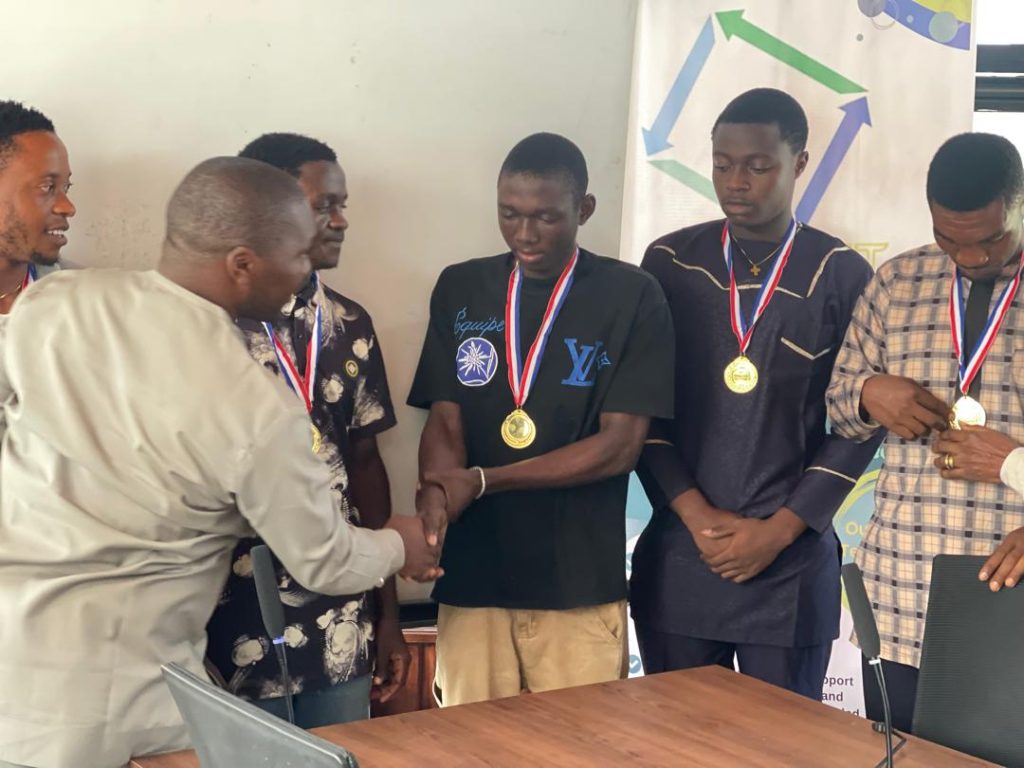
In a bid to see a new generation of IoT Innovators, the organizers expressed their gratitude to BUIB, the participants, mentors, and sponsors who made the program a success as the event drew to a close. The founder of SUM-IT Africa commended the participants for their dedication and encouraged them to continue exploring IoT technologies beyond the hackathon. The Director of BUIB’s School of Engineering and Technology reiterated the institution’s commitment to fostering a culture of innovation and expressed hope for future collaborations. The three-day IoT capacity-building and hackathon program at BUIB was more than just a competition; it was an immersive learning experience that empowered participants with the skills, knowledge, and confidence to develop impactful IoT solutions. For many, this event marked the beginning of their journey as IoT innovators, paving the way for a future where technology drives positive change in Africa’s digital economy.

